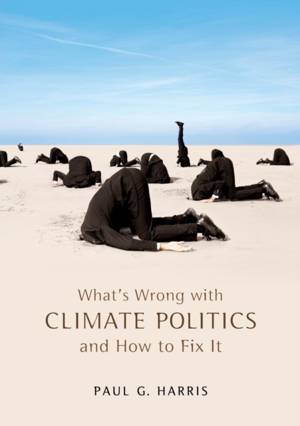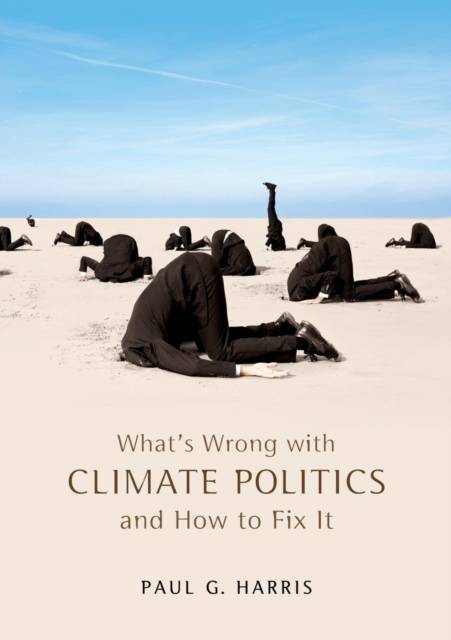
Je cadeautjes zeker op tijd in huis hebben voor de feestdagen? Kom langs in onze winkels en vind het perfecte geschenk!
- Afhalen na 1 uur in een winkel met voorraad
- Gratis thuislevering in België vanaf € 30
- Ruim aanbod met 7 miljoen producten
Je cadeautjes zeker op tijd in huis hebben voor de feestdagen? Kom langs in onze winkels en vind het perfecte geschenk!
- Afhalen na 1 uur in een winkel met voorraad
- Gratis thuislevering in België vanaf € 30
- Ruim aanbod met 7 miljoen producten
Zoeken
Omschrijving
Governments have failed to stem global emissions of carbon dioxide and other greenhouse gases causing climate change. Indeed, climate-changing pollution is increasing globally, and will do so for decades to come without far more aggressive action. What explains this failure to effectively tackle one of the world's most serious problems? And what can we do about it?
To answer these questions, Paul G. Harris looks at climate politics as a doctor might look at a very sick patient. He performs urgent diagnoses and prescribes vital treatments to revive our ailing planet before it's too late.
The book begins by diagnosing what's most wrong with climate politics, including the anachronistic international system, which encourages nations to fight for their narrowly perceived interests and makes major cuts in greenhouse pollution extraordinarily difficult; the deadlock between the United States and China, which together produce over one-third of global greenhouse gas pollution but do little more than demand that the other act first; and affluent lifestyles and overconsumption, which are spreading rapidly from industrialized nations to the developing world.
The book then prescribes several "remedies" for the failed politics of climate change, including a new kind of climate diplomacy with people at its center, national policies that put the common but differentiated responsibilities of individuals alongside those of nations, and a campaign for simultaneously enhancing human wellbeing and environmental sustainability. While these treatments are aspirational, they are not intended to be utopian. As Harris shows, they are genuine, workable solutions to what ails the politics of climate change today.
To answer these questions, Paul G. Harris looks at climate politics as a doctor might look at a very sick patient. He performs urgent diagnoses and prescribes vital treatments to revive our ailing planet before it's too late.
The book begins by diagnosing what's most wrong with climate politics, including the anachronistic international system, which encourages nations to fight for their narrowly perceived interests and makes major cuts in greenhouse pollution extraordinarily difficult; the deadlock between the United States and China, which together produce over one-third of global greenhouse gas pollution but do little more than demand that the other act first; and affluent lifestyles and overconsumption, which are spreading rapidly from industrialized nations to the developing world.
The book then prescribes several "remedies" for the failed politics of climate change, including a new kind of climate diplomacy with people at its center, national policies that put the common but differentiated responsibilities of individuals alongside those of nations, and a campaign for simultaneously enhancing human wellbeing and environmental sustainability. While these treatments are aspirational, they are not intended to be utopian. As Harris shows, they are genuine, workable solutions to what ails the politics of climate change today.
Specificaties
Betrokkenen
- Auteur(s):
- Uitgeverij:
Inhoud
- Aantal bladzijden:
- 296
- Taal:
- Engels
- Reeks:
- Reeksnummer:
- nr. 7
Eigenschappen
- Productcode (EAN):
- 9780745652511
- Verschijningsdatum:
- 10/06/2013
- Uitvoering:
- Paperback
- Formaat:
- Trade paperback (VS)
- Afmetingen:
- 147 mm x 206 mm
- Gewicht:
- 417 g

Alleen bij Standaard Boekhandel
+ 96 punten op je klantenkaart van Standaard Boekhandel
Beoordelingen
We publiceren alleen reviews die voldoen aan de voorwaarden voor reviews. Bekijk onze voorwaarden voor reviews.









